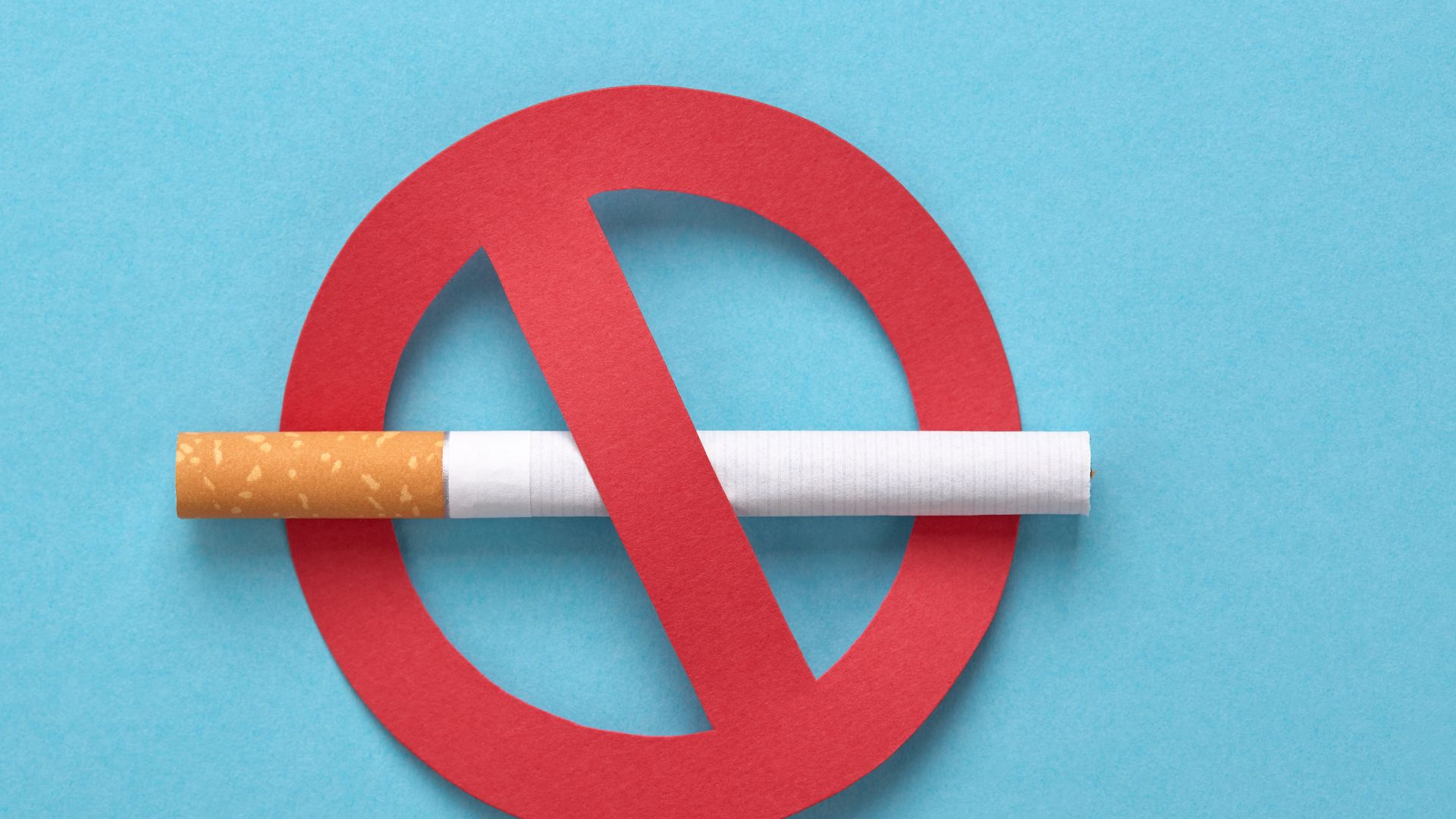Hey there, fitness enthusiasts! We’ve all heard about the importance of exercise and maintaining a healthy lifestyle.
But what about those who wonder if lighting up a cigarette after a grueling session of squats might not be all that bad? Well, let’s dive into this intriguing question and explore whether smoking a cigarette after doing squats is a match made in heaven or a health and fitness disaster waiting to happen. Buckle up, because we’re about to uncover the facts and myths behind this unusual combo!
Understanding if Smoking a stick of Cigarette “after doing squats” is good.
It’s advised to avoid smoking altogether if you’re to maintain a healthy lifestyle and maximize the benefits of exercise, Instead, focus on maintaining a balanced diet, staying hydrated, and getting enough rest to support your fitness goals
No, Smoking a cigarette after doing squats is not a good idea, and I strongly advise against it.
Here’s why:
Health Risks: Smoking cigarettes is associated with a wide range of serious health risks, including lung cancer, heart disease, respiratory problems, and more.
The harmful chemicals in cigarettes can damage your lungs and cardiovascular system, which can counteract the benefits of exercise like squats.
Reduced Exercise Benefits: Squats are a great exercise for building strength and muscle in your lower body, but smoking can reduce the oxygen-carrying capacity of your blood and limit the amount of oxygen that reaches your muscles.
This can impair your workout performance and hinder your progress.
Contradictory Goals: Smoking is detrimental to your overall health, while exercise, like squats, is intended to improve your health and fitness. These two activities have opposing effects on your well-being.
Counterproductive Recovery: After a workout, your body needs proper nutrition and rest to recover effectively.
Smoking can hinder your body’s ability to recover by interfering with circulation and increasing inflammation, potentially leading to longer recovery times and reduced gains.
If you’re looking to maintain a healthy lifestyle and maximize the benefits of exercise, it’s essential to avoid smoking altogether.
Instead, focus on maintaining a balanced diet, staying hydrated, and getting enough rest to support your fitness goals.

Further explanations
Let’s dive deeper and explain further the point mentioned here.
Health Risks:
Smoking cigarettes introduces a host of harmful chemicals into your body, including nicotine, tar, and various carcinogens. These substances have several negative effects on your health:
Lung Damage:
Smoking damages the delicate tissues of your lungs and can lead to chronic obstructive pulmonary disease (COPD) and lung cancer.
Squats and other exercises require good lung function to provide oxygen to your muscles efficiently. Smoking compromises this lung function.
Cardiovascular Problems:
Smoking is a major risk factor for heart disease. It can raise your blood pressure, increase the risk of blood clots, and lead to the narrowing of your arteries (atherosclerosis).
When you do squats or any other exercise, your heart needs to pump oxygen-rich blood to your muscles. Smoking can strain your cardiovascular system, making it less efficient at supplying the necessary oxygen.
Respiratory Issues:
Smoking irritates and inflames the airways, which can lead to chronic bronchitis and other respiratory problems.
This inflammation can affect your ability to breathe properly during exercise, reducing your endurance and performance.
Reduced Exercise Benefits:
When you smoke, one of the most immediate effects is a decrease in your body’s ability to transport oxygen. Here’s how this relates to squats and exercise:
Oxygen-Carrying Capacity:
Hemoglobin, a protein in your red blood cells, carries oxygen from your lungs to your muscles.
Smoking reduces the oxygen-carrying capacity of your blood because carbon monoxide in cigarette smoke binds more tightly to hemoglobin than oxygen does.
This means less oxygen is available to be transported to your muscles when you exercise.
Muscle Function:
During squats and other exercises, your muscles need oxygen to generate energy (ATP) efficiently.
When there’s a reduced oxygen supply due to smoking, your muscles may fatigue more quickly, and you won’t be able to perform at your best.
This can result in reduced strength gains and hindered progress in your fitness goals.
In all this is that, smoking is detrimental to both your overall health and your exercise performance.
It compromises lung function, reduces the oxygen supply to your muscles, and increases the risk of heart and lung problems.
To maximize the benefits of exercises like squats and maintain good health, it’s essential to avoid smoking and support your body with a healthy lifestyle instead.
Contradictory Goals:
Smoking:
Smoking cigarettes is well-known to be detrimental to your overall health. It introduces harmful chemicals into your body, as mentioned earlier, and is a leading cause of preventable diseases and premature death.
It undermines your well-being and can lead to a range of health problems, including cancer, heart disease, and respiratory issues.
Exercise (Squats):
The goal of exercise, such as squats, is to improve your health and fitness. Squats are a compound exercise that primarily targets the muscles in your lower body, including your quadriceps, hamstrings, glutes, and lower back.
When done correctly, squats can help increase muscle strength, improve joint mobility, and enhance overall fitness. They also contribute to better posture and may aid in weight management.
These two activities have opposing effects on your well-being because smoking poses substantial health risks, while exercise, like squats, is an essential component of a healthy lifestyle that promotes well-being.
Counterproductive Recovery:
Smoking:
Smoking has several adverse effects on the body’s ability to recover after exercise:
Circulation:
Smoking constricts blood vessels and reduces blood flow. This limits the delivery of oxygen and essential nutrients to muscles and tissues, hindering their repair and recovery.
Inflammation:
Smoking increases inflammation in the body. After intense exercise, your muscles experience micro-tears, and inflammation is a natural part of the healing process.
However, smoking exacerbates this inflammation, potentially leading to more significant discomfort and longer recovery times.
Exercise Recovery:
After a workout, your body requires proper nutrition and rest to recover effectively. This includes replenishing glycogen stores, repairing muscle tissue, and reducing inflammation.
Smoking disrupts these processes, making it more challenging for your body to bounce back from the physical stress of exercise.
In all this, smoking and exercise have fundamentally opposing effects on your health and fitness goals.
Smoking is harmful and counterproductive to both your overall health and exercise recovery, while exercise, like squats, is a vital component of a healthy lifestyle that supports well-being and fitness.
To maximize the benefits of exercise and promote a healthy life, it’s crucial to avoid smoking and prioritize good nutrition, rest, and recovery practices.
A concise tabular on this topic here
Here’s a concise tabular representation of the topic “Smoking a Cigarette After Doing Squats”:
| Aspect | Smoking a Cigarette After Doing Squats |
|---|---|
| Health Impact | Negative |
| Lung Health | Harmful |
| Cardiovascular Health | Harmful |
| Exercise Benefits | Reduced |
| Oxygen Delivery to Muscles | Impaired |
| Recovery | Hindered |
| Fitness Goals | Contradictory |
In summary, smoking a cigarette after doing squats is not a good idea. It has negative impacts on your health, reduces exercise benefits, impairs oxygen delivery to muscles, hinders recovery, and contradicts fitness goals.
Conclusion.
In conclusion, smoking a cigarette after doing squats is unequivocally detrimental to both your health and fitness goals.
It compromises lung and cardiovascular health, reduces exercise benefits, impairs muscle oxygenation, hinders post-workout recovery, and contradicts the pursuit of a healthy lifestyle. It is strongly advised to avoid this practice for the sake of your well-being.

Hey there, it’s Mike Rrsq, the Editor-in-Chief over at Jsquat.com, and I’m absolutely obsessed with all things squat fitness! I’ve been lucky enough to get some serious recognition for my work in this field. With a solid background in the fitness and wellness industry, I’ve been there right from the get-go, helping shape this website into what it is today.
You see, I’m not just the boss around here; I’m also a passionate contributor. I love sharing my insights through my articles, and trust me, they’re not your run-of-the-mill stuff. Each piece I write is a labor of love, filled with my expertise and real-world experience in the fitness universe. So, if you’re into fitness and looking for some inspiration, you’re in the right place!

